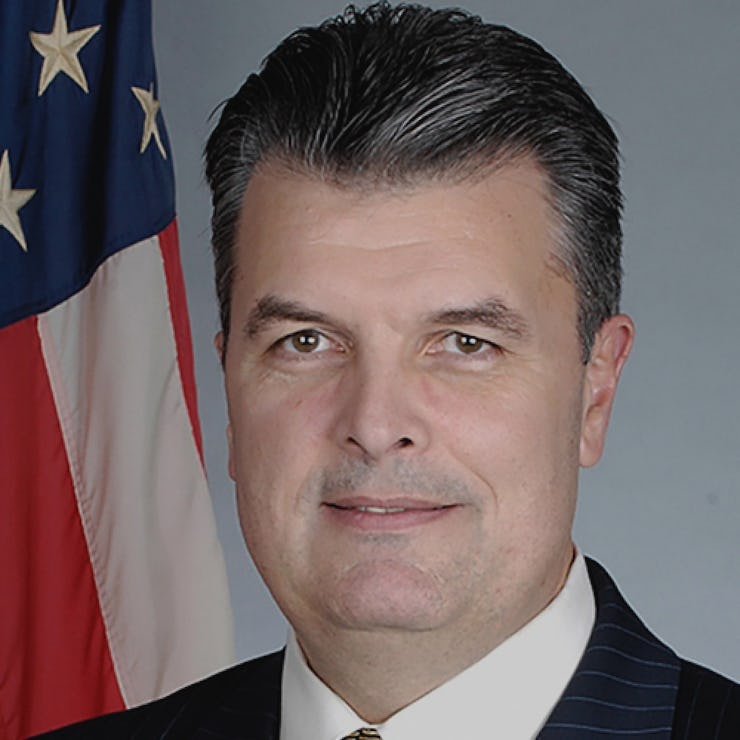Why Trump fired a career climate scientist a week before the election
NOAA is crucial to modern science. Here's why Trump's recent move is so dangerous

As 2020 election fervor reaches its zenith, President Trump is in full attack mode. And true to form, science is no exception.
While complaints about Joe Biden and Gretchen Whitmer demand the public's attention, his administration removed Craig McLean from the post of Acting Chief Scientist of the National Oceanic and Atmospheric Administration.
Why? McLean asked Trump appointees to the agency to acknowledge their scientific integrity policy, according to a report in the New York Times Tuesday.
The administration's response to McLean’s emailed requests could signal major changes ahead for NOAA if Trump wins a second term, suggests the report. And that has huge implications for the fight against climate change.
What is NOAA? — Alongside NASA, the Department of Energy, and the EPA, NOAA is a jewel among the United States government’s scientific agencies. Founded in 1970, the agency's roots date back to 1807, when then-President Thomas Jefferson began a scientific survey of our then young nation’s coastal waters.
Today, NOAA's work is critical to the lives of millions. The National Weather Service offers up daily forecasts, among the most accurate weather predictions available — this is where most smartphone weather apps get their info. The forecasts are also key to understanding global warming and the weather events that come with it, like drought and hurricanes.
One of NOAA's "Hurricane Hunter" planes, known as Kermit.
At the same time, the National Ocean Service provides crucial scientific data to coastal communities, from maps to water-level monitoring. On a more general level, NOAA expands our perspective on our planet. Livestreaming from research ships like the Okeanos Explorer since 2012, NOAA has allowed the public to experience the wonder of discovery alongside its scientists.
NOAA's research ships provide unprecedented insight into the worlds that lie beneath the ocean's surface.
Unusually for a scientific agency, NOAA, which employees over 11,000 people, is housed within the Commerce Department. The reason for this odd placement, as opposed to the Department of Interior, is that President Nixon was annoyed at his Secretary of the Interior at the time.
And perhaps less unusually for a scientific agency in the time of Trump, NOAA has clashed with the president numerous times. But the ousting of Craig McLean brings the clash to a head.
Defending scientific integrity — McLean, whose biography is no longer online as of Friday, October 30, had a history of standing up to the Trump Administration’s encroachments on science.
The first sign of trouble came in 2019, when Hurricane Dorian was bearing down on several states. President Trump tweeted that Alabama was at risk, although this was not what NOAA was predicting.
The National Weather Service in Birmingham, Alabama, responding to a sudden influx of enquiries from worried locals, publicly disagreed with the president. In turn, Trump appointees at NOAA began attacking the Birmingham office. The incident spiraled on into “Sharpiegate,” so-called because of the doctored map Trump brandished that seemed altered to show Alabama in harm’s way.
President Trump sharing a forecast of Hurricane Dorian altered to match his prediction regarding Alabama, later known as "Sharpiegate"
Internal documents later showed that McLean was seen as one of the chief internal defenders of NOAA’s science, according to the report.
“I find it unconscionable that an anonymous voice inside of NOAA would be found to castigate a dutiful, correct, and loyal NWS Forecaster who spoke the truth,” he wrote in an internal email released in May 2020.
Writing to other officials, McLean also said “I hope that NOAA’s trust in the public eye will outlast this Administration, but until then I harbor a great concern for all scientists, science missions, and the quality of our public communications about our research in that a spurious press release may accompany any future scientific conclusion," the report shows.
The future of NOAA — This week, Trump-appointed science advisor Erik Nobel replaced McLean with Ryan Maue. Maue, a hurricane researcher who has a PhD in meteorology, previously worked at the libertarian Cato Institute and several private weather companies. He also has a popular following on Twitter.
Throughout his career, Maue has downplayed climate change. Writing in the Wall Street Journal in 2017, Maue said that “journalists fail to appreciate the complexity of extreme weather events." He has also publicly scorned the scientist James Hansen, a scientist whose Cassandra-like predictions about climate change have stood up to peer review. Maue describes global warming as modest, and called for “lukewarm policy, consistent with a lukewarming planet," according to a Wall Street Journal report.
The Intergovernmental Panel on Climate Change warns global warming could result in "multi-meter rises in sea level on time scales of century to millennia," resulting in the destruction of entire cities.
So how will Maue govern NOAA? His Twitter feed offers clues. His most-recent posts focus on hurricane forecasting, fire prevention practices, and President Trump signing a bill geared toward tracking space weather. But if Maue's personal attitudes creeps into the official policy of a top scientific agency, the erosion of trust in U.S. scientific research that McLean worried about may come true.
Correction: A previous version of this story implied McLean had permanently left NOAA. He continues in his role as Assistant NOAA Administrator for Oceanic and Atmospheric Research. We regret the error.